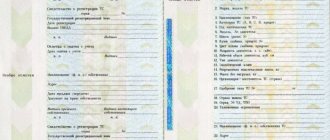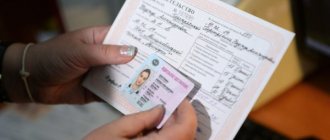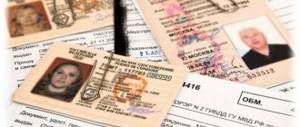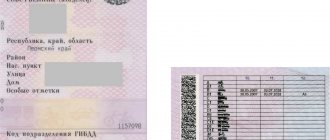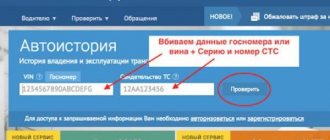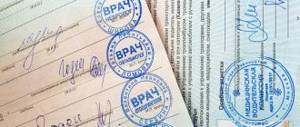If you plan to travel to another country, but there are doubts that you will be released, you should clarify in what ways you can check the ban on traveling abroad. If there is this prohibition, knowing about it will help you avoid trouble. For example, remove a factor that interferes with free movement or eliminate the need for lengthy preparations on a trip. We need to figure out why travel abroad is prohibited. The information in question can be obtained online or by filling out a special form in specialized authorities.
Conditions under which they will not be allowed to go abroad
Art. 15 Federal Law 114 defines the category of persons whose temporary travel restrictions are related to professional activities, specific legal status and other circumstances.
According to this article, the “black list” of border guards will include:
- Suspects accused of a crime. The ban will remain in effect until the case is closed and a decision is made on it.
- Conditionally released, convicted. The restriction will be lifted only after the criminal record has been cleared or the sentence has been served.
- Called up for compulsory military service or sent to alternative. Departure is not possible until the end of the passage period.
- FSB employees, including civilian personnel. The ban is imposed until the end of the service period and is lifted in exceptional cases (the need for treatment abroad, the death of a loved one) with the permission of a superior official.
- Possessing, by the nature of their activities, state secrets of special secrecy or importance.
- Those who evade obligations imposed by the court. The ban will remain in force until the requirements of the court decision are fulfilled or the parties reach a mutual agreement.
- Those who gave false information when preparing exit documents.
- Going through bankruptcy proceedings. The ban is valid until the court recognizes the financial insolvency of the citizen.
According to Art. 67 Federal Law 299, the bailiff has the right to temporarily restrict departure from the country:
- A person who has not satisfied non-property requirements (reinstatement of an illegally dismissed employee).
- A person who has a total debt of more than 10 thousand rubles to pay:
- alimony;
- compensation for harm caused to health, death of the breadwinner;
- compensation for moral damage, property damage received as a result of the crime.
- A citizen who has not fulfilled other monetary obligations (traffic police fines, taxes, utility bills, loans) totaling more than 30 thousand rubles.
Thirty thousand rubles were not taken out of thin air. Experts conducted a study and found that it is precisely this debt limit that distinguishes a willful defaulter from someone who forgot to repay the loan payment on time or accidentally accumulated unpaid fines.
If two months after the expiration of the period for voluntary execution the debt is not repaid, the threshold at which a ban can be issued will be reduced to 10 thousand rubles.
Debt consists of several monetary obligations. That is, if several small debts in total exceed the established norm, the bailiff will have grounds to restrict travel.
P. 48 Resolution of the Supreme Court of the Russian Federation No. 50 of November 17, 2015
If each of the property claims unfulfilled by the debtor does not exceed the minimum amount of debt determined by Part 1 of Article 67 of the Law on Enforcement Proceedings, in the presence of which a temporary restriction may be established on the debtor’s departure from the Russian Federation, and the total amount of property claims unfulfilled by the debtor under the consolidated enforcement proceedings exceeds this amount, then within the meaning of Articles 4, 64 and 67 of the said Law, the establishment of a temporary restriction on the debtor’s departure from the Russian Federation is permissible.
Why is travel abroad closed?
In Russia, restrictions on traveling abroad are imposed by a bailiff. Here are the cases in which he has the right to do this:
- if there are debts for alimony, compensation for property damage, moral damage and harm to health in the amount of 10,000 rubles;
- if there are debts on taxes, loans, traffic police fines, utilities or other government claims in the amount of 30,000 rubles. If you are two months overdue on the voluntary repayment date indicated by the bailiff, then a debt of 10,000 rubles is sufficient for a travel ban;
- if requirements of a non-property nature are not fulfilled on time, for example, those relating to communication with a child after the parents’ divorce.
This is stated in Article 67 of Federal Law No. 229-F3 “On Enforcement Proceedings” and applies to individuals and individual entrepreneurs.
Debts add up. If you have several small debts, but the total amount is more than 30,000 rubles, then the bailiff has the right to impose a travel ban by decision of the plenum of the Supreme Court of the Russian Federation No. 50.
Banning procedure
The procedure for imposing a ban is as follows:
- The person to whom the defendant has an unfulfilled obligation applies to the court to resolve the issue.
- In case of a favorable outcome, the plaintiff receives a writ of execution, which he sends to the FSSP authorities.
- The bailiff, having accepted the writ of execution, initiates proceedings within three days (Article 30, paragraph 8 of Federal Law 299) and sets the debtor a period (5 days) for voluntary compliance with the requirements.
- If the obligation is not fulfilled within the established period, the SSP employee, on his own initiative or at the request of the creditor, has the right to issue a resolution to temporarily restrict the debtor’s travel outside the Russian Federation.
- The resolution is approved by the higher management of the bailiff.
- Information about the decision made is transmitted to the border and federal migration services. A copy of the decision must be sent to the debtor the next day after its issuance. As practice shows, the recipient often does not receive documents and remains in the dark about the status of “restricted to travel.”
The resolution is valid for 6 months. After this time, the ban is automatically lifted. If the debtor does not fulfill the obligation, the bailiff has the right to again restrict travel for six months and do so until the requirement of the writ of execution is fully satisfied (Appendix No. 54 to the FSSP Order No. 318 of July 11, 2012).
Thus, the debtor has a green light at customs until a corresponding decision is issued.
Often, bailiffs, even if the debt exceeds 30 thousand rubles, do not impose a ban on leaving. The reason is the enormous workload. According to research conducted by the Accounts Chamber in September 2021, one SSP employee handled more than 400 cases monthly, which is 18 times the established norm. Civil servants, overwhelmed with a large volume of work, simply do not have time to perform their duties efficiently. If the collector does not show activity, the debtor has hope of traveling abroad without any problems.
So it turns out that the presence of debt and enforcement proceedings in itself is not an indicator that a person will not be released from the country.
In addition to the bailiff, the court can restrict travel abroad. For example, if the writ of execution was issued on the basis of a notarized agreement on the payment of alimony, the certificate of a commission on labor disputes, acts of authorized bodies, officials. In this case, the duration of the ban is determined by a court decision.
Customer Reviews
Gratitude from Remedova A.G. I express my gratitude to the Legal Agency of St. Petersburg, namely Denis Yuryevich Stepanov, for the assistance provided in resolving my issue, and I also express my gratitude to the entire team of the consumer rights protection society for their responsiveness and pleasant communication.
Remedova A.G. 08/17/2018
Gratitude from gr. Kolesnikova A.N. Let me express my deep gratitude to the Legal Agency of St. Petersburg, located at Spassky Lane, 12. For their professional and friendly assistance in resolving my issue! I wish to continue working, bringing benefit to all residents of St. Petersburg. And not only.
Kolesnikov Alexander Nikolaevich.
Position: Head of the Metro Implementation Sector
PS: Before your company, I contacted 5 companies on this issue and received unclear answers.
Gratitude from gr. Bogodyazh N.G. I, Bogodyazh N.G. turned to the Legal Agency of St. Petersburg for help in a dispute with the company RTC JSC regarding the refusal to return the goods in accordance with the rules of trade, thereby my consumer rights were violated.
Thanks to the company’s lawyer, Stepanov D.Yu., I was able to return the money for the low-quality product, and I also received an apology from my opponent. I would like to express my gratitude for the qualified assistance provided to me by D. Yu. Stepanov and the Legal Agency of St. Petersburg.
With gratitude, Bogodyazh.
Gratitude from Komardin I ask you to express my gratitude to lawyer Alexander Viktorovich, who competently and clearly explained to me my further actions to solve the problem that my relatives found themselves in.
02/11/18 Komardin S.I.
Gratitude from Alexey Shubakov Many thanks to Sergei Vyacheslavovich for the complete and detailed consultation. I have not encountered legal assistance before, but now, with a very favorable impression, I will definitely apply again in the future.
Shubakov Alexey 10/17/2018
Gratitude from Guryanova T.A. I express my sincere gratitude to Vasily Anatolyevich for his professionalism and highly qualified assistance in resolving the issue of protecting my rights as a consumer. As a result, I received decent compensation from.
Thanks a lot. 07/09/2019
Gratitude from Elena and Alexander I sincerely thank lawyer Vasily Anatolyevich for his qualified and polite service. We will always contact you and tell our friends. Thank you.
Elena
Alexander 998-98-59
Gratitude to Konstantin Vasilievich Solovyov I am very glad that I was accepted for a consultation with Konstantin Vasilievich Solovyov. An excellent, very competent lawyer. Please accept my gratitude for your excellent service. Thank you!
Valadze G.G. 08/17/2018
Review by Egorova A.N. I, Egorova Antonina Nikolaevna, am very pleased with the consultation of Yuri Vladimirovich Sukhovarov. Thank you for your attentiveness and understanding. I wish you further professional growth.
Thanks from Radhuan M.R. Dear Kavaliauskas Vasily Anatolievich. Let me express my sincere gratitude for the qualified legal assistance provided. Thanks to your professionalism, I was able to achieve a decision in my favor. I wish you further prosperity and professionalism.
Radhuan M.R. 06/08/2018
Where and how to find out if traveling abroad is prohibited?
On the website of the tax inspectorate and traffic police
On the website of the Federal Tax Service and the State Traffic Safety Inspectorate, you can only check the amount of your existing debt, nothing more. There is no information about the ban. The tax authority does not have the right to restrict travel. Information about a debt of more than 10 thousand rubles suggests possible difficulties with crossing the border.
At the bailiffs (FSSP)
On the FSSP website you can find out about the existence of enforcement proceedings, the number, amount of the claim, the reason for the occurrence, full name, contact information of the bailiff handling the case. There is also no information about the ban. The debtor is left to guess and hope that the official “forgot” to issue a ruling, and the way is open at customs.
To clarify the situation, you can personally contact the bailiff by calling or coming to an appointment. In this case, there is a high probability that the SSP employee, who did not impose the ban on time, will learn about the mistake and immediately correct it.
On the official website of the Russian Ministry of Internal Affairs
You can check the presence of restrictions on the official website of the Russian Ministry of Internal Affairs by performing a series of sequential actions:
- Go to the website, select “Online Services”.
- Click on the “Reception of applications from citizens and organizations” tab.
- From the list, select “Main Directorate for Migration Issues” (located at the very end of the list).
- Click "Continue".
- Confirm that you are familiar with the information about the rules for filling out, registering an application, and the deadline for receiving a response by checking the appropriate box.
- Click “Submit a request”.
- Fill out the fields, write a request for information about the existence of a ban.
The response will be emailed within 30 days.
On the State Services website
On the State Services website you can find out about the existence of a ban in 3 minutes. To take advantage of this opportunity, the user must be registered in the system. True, you will have to spend time or money on this.
When registering a personal account, you will need to have a verified account. To create one, you need to contact the MFC or send a request by mail, which will take a certain amount of time. As an option, you can purchase an enhanced qualified electronic signature costing 1 thousand rubles.
It’s easier if a person is a client of Sberbank or Tinkoff. In this case, you can get a confirmed account online in Internet banking and it will take no more than 10 minutes.
After registering in your personal account, you should send a request about the progress of enforcement proceedings, having previously found out the number and opening date on the FSSP website.
On other information resources
There are many sites on the Internet that position themselves as a source of reliable information about the existence of the ban. But upon closer examination, it becomes clear that most online resources simply duplicate information from official sources, showing debts that may serve as grounds for restricting travel.
Most popular:
- The official website of the FSSP is a free resource that shows data on existing debts in enforcement proceedings, due to which traveling abroad may be impossible.
- RU. To check for open court cases, tax debts, fines and overdue loans, the user needs to pay 199 rubles. The answer will be sent to your email address.
- Failure to fly. The Russian Federation, the most popular portal among those traveling abroad, does not provide a specific answer. Shows the probability of departure as a percentage. The result is issued in the form of a sheet with statistics on which the debt is indicated. The cost of the service is 99 rubles. Users like the resource for the speed of obtaining information and the possibility of free consultation. The site owners claim that the information provided to customers is current at the time of the request.
- The unofficial FSSP website is a free resource. The answer comes almost immediately. According to users, the information is always reliable and up-to-date. Here you can find out the debt for enforcement proceedings, traffic police fines and pay it.
How to check for debts
The debtor is notified of the existence of a debt and a travel ban by means of a letter. But often citizens do not receive them due to the fact that they do not live at their permanent registration address or are even located and work in another region. Therefore, if there are doubts about the presence of any penalties, it is better to check them yourself. You can do this in several ways:
- On the government services portal . If you did not have an account before, register and log into your personal account. On the website, fill out a special application for information. If it turns out that you have debts, you can pay them directly through the government services portal.
- On the Federal Tax Service website . On the Tax Service page you can check for any tax debts. To do this, enter your TIN, full name or check your personal account.
- In the FSSP. To check information on debts, it is not necessary to register on the site. On the search page, indicate the territorial branch. After that, enter your year of birth and full name. A page will open with information about all the proceedings opened by bailiffs for your name. If you have debts, you can close them here.
In addition to the listed methods, you can get a full check on the website nevylet.rf or other similar paid services. But for this service you will have to pay about 300 or 500 rubles.
What to do if there is a debt/ban
As practice shows, it is advisable to inquire about the possibility of crossing the border at least two weeks before departure.
If it turns out that there is enforcement proceedings or debt, you need to:
- pay the debt off;
- contact the bailiff;
- provide proof of payment made;
- ask for the ban to be lifted.
Having made the payment, it is worth remembering the heavy workload of the performers and be sure to visit the SSP employee, making sure that the necessary actions to close the case and lift the restrictions will be taken.
According to Art. 67 clause 7 of Federal Law 299, the official, no later than one day from the moment of receiving confirmation of payment, must issue a resolution to lift the ban (Article 67 clause 7 of Federal Law 299), send information about this to the Central Administration of the FSSP of Russia, from where it will be transferred to the FSB .
All this will take time. FSSP director Dmitry Aristov, giving an interview to the Kommersant newspaper in May 2021, claimed that the restriction would soon be lifted 23 minutes after the debt is repaid.
But for now, removal from the “black list” of customs officers has to wait much longer and you need to be prepared for this.
If a person does not have the opportunity to pay off the entire debt at once, you can negotiate with the bailiff about gradual repayment and ask him to lift the restriction.
There are also loopholes for those who are unable to deal with their debts and obligations. Debtors who are not allowed to travel may try to travel around the border through Lithuania and the states of the “Customs Union”: Uzbekistan, Kazakhstan.
Until recently, this scheme worked. But since mid-2017, border guards of Russia, Kazakhstan and Belarus began to exchange information, so this method of crossing the border is increasingly malfunctioning.
Court decisions
The insurance company demands additional payments
Hiding from the scene of an accident: how to prove the driver’s innocence?
Article - fraud: how to get rid of unfounded accusations?
Collection and actual receipt of debt from a Moscow company in the Moscow Arbitration Court WITHOUT traveling to Moscow in 2.5 months.
Phone repair service paid 40,000 rubles for poor quality service
Online scammers: the case of a missing online store
How to lift a ban on traveling abroad
- Full payment of the debt. The debtor is obliged to approach the bailiff who has the case. A receipt is printed out for him (you can print it yourself on the FSSP website). Then, go to any bank and pay.
- The debtor agrees with the bailiff on the amount of the monthly payment. If the creditor does not require a ban on traveling abroad, the bailiff will not do this and will lift the restrictions after several payments.
- The debtor’s ban on traveling abroad will be lifted if it is a work necessity. Without help, he will not be able to pay off his debts. But if the lender is not satisfied with this, then the borrower will have to look for a new job.
- The bailiff's period of execution if the borrower does not pay is not unlimited. It is necessary to make a decision to terminate enforcement proceedings due to the impossibility of collection. Compulsory measures will be lifted on their own.
Minuses:
- you cannot have property;
- you cannot live at the registration address;
- You cannot work officially;
- You will have to wait at least a year.
- Find a lawyer and go to court. The ban on traveling abroad violates constitutional human rights. As a rule, bailiffs make a bunch of violations, prohibiting the debtor from traveling outside the Russian Federation. For example, they do not notify about this. The borrower may not even know that there was a court hearing and enforcement proceedings were initiated.
But if the bailiffs prove that the debtor knew about the debt, received notice of the initiation of enforcement proceedings against it, and does not live at the registered address (hides), he will not win the court.
Important! If the debtor has lifted the ban on traveling abroad, this decision will not be implemented immediately. It will take two months to notify all agencies, including the border.
The debt has been paid. When will the travel ban be lifted?
Paying all debts is the easiest way to travel abroad
To lift the ban, you must pay all debts and inform the bailiff about it. It is possible to remove restrictions for a while:
- By agreement between the debtor and the claimant in court.
- If the claimant is a legal entity that is not included in the register of legal entities.
- It is also possible to appeal the decision to the appellate and cassation instances.
You can pay off your debt:
- at a bank branch;
- via terminal;
- through the FSSP mobile application;
- on the government services portal;
- using an electronic wallet.
It is possible to ask the court for payment in installments when it is not possible to repay the entire debt. However, in this case, evidence is needed that this is not possible. Then you need to inform the bailiff about the payment.
To repay the debt urgently, you must pay the entire amount of the debt and immediately notify the bailiffs about this with a receipt for payment. The bailiff must issue a decree with an official seal stating that the restriction has been lifted. Information processing takes approximately 2 weeks.
If bailiffs violate the law, compensation can be obtained from them. It is regulated by Law No. 68 “On compensation for violations of the rights to legal proceedings within the period established by law or the right to execution of a judicial act within a reasonable time.”
There are several ways to travel abroad with debts
There are ways that will allow you to cross the border, even with existing debts. For example, leaving through another state, in particular through Belarus. This option was successful, but since 2017, countries began to unite “black lists” of citizens restricted in movement between states.
Among other ways by which you can travel outside the Russian Federation with debts, you can highlight the method of payment in installments. To do this, you need to contact the bailiff and prepare a petition to the judicial authorities. A court decision to restructure the debt will allow the debtor to be removed from the “black” lists.
Other cases in which travel abroad is restricted include:
- Having problems with the law.
- Completion of military service.
- Service in law enforcement agencies.
- Working with information that is a state secret.
A child is prohibited from traveling abroad in the following cases:
- if the minor does not have an international passport or is not included in the parent’s international passport;
- lack of parental or guardian permission to travel abroad;
- availability of an official document prohibiting the child from traveling abroad from one of the parents or guardians.
Some government employees are prohibited from traveling outside the Russian Federation. These include those employees who have access to information classified as “top secret”, “special importance”, those serving in the army and in alternative civil service, except for contract employees, as well as employees of the FSB and the Ministry of Internal Affairs.
Noticed a mistake? Select it and press Ctrl Enter to let us know.
Debtors against whom enforcement proceedings have been initiated are deprived of the right to travel outside the country. In accordance with Law No. 229-FZ (Article 43, Part 1, Article 46, Clause 1, Part 3, Part 1, Article 47), the travel ban from the FSB is lifted under the following conditions:
- the citizen fully satisfied the requirements of the executive document, closing his debt obligations;
- the claimant wrote an application for the return of the writ of execution;
- inability to establish the actual location and property of the debtor;
- cancellation of executive documentation or recognition of it as invalid;
- entry into force of a settlement agreement on the absence of debt obligations between the debtor and the collector;
- exclusion of the debtor from the Unified State Register of Legal Entities if the debtor acted as a legal entity (organization).
Note:
It should be borne in mind that the claimant reserves the right to resume the proceedings if the 3-year period has not expired from the date of its entry into force. Therefore, always check whether you have any debt before your trip, so that an unexpected “surprise” does not await you at the border checkpoint.
We invite you to familiarize yourself with: Apartment rental agreement with acceptance certificate, 2021, 2021 - Residential rental agreement - Samples and forms of agreements
Today, a ban on leaving Russian territory is one of the most effective measures to combat debt.
A citizen will not be able to go abroad if administrative proceedings have been initiated against him, which is associated with the presence of various types of debts. Those who do not pay their obligations on time are also included in the “black list”.
To be able to travel abroad again, a person will first need to pay off his existing debt. Bills must be paid to the organization that filed the claim.
After the official department makes a decision to impose restrictions, the citizen will have 2 weeks to pay all debts. It should be remembered that this period is calculated from the moment the resolution was adopted, and not from the day the person received it.
Bailiffs have the power to overturn a decision. They lift restrictions when the debtor presents a document confirming the repayment of all overdue payments. The procedure occurs in several stages:
- existing debts are repaid;
- funds are transferred to public utilities (or other organizations), which is reported to the bailiffs;
- a department specialist draws up a resolution and sends it to the border service;
- The data obtained makes it possible to lift the travel ban.
Modern equipment makes it possible to reduce the time it takes to transfer information, but before going abroad you should make sure that the information has been received and restrictions have been lifted.
In some cases, the decision to ban can be challenged. The law provides for a similar procedure if the resolution was drawn up with errors. This can happen when the bailiff wrote out the grounds for the ban, but within the same period the debtor has already paid off the overdue payments. You can also challenge a decision about which the citizen was not notified.
The legislation defines situations in which a person will not be able to leave the country. If there are arrears on debt obligations, the citizen will not be able to travel abroad until the debts are repaid.
The best way to avoid a travel ban is to find out about your debts in time and pay them, without going to court or enforcement proceedings.
You need to check for debts yourself, especially if you do not live where you are registered: few people receive mail notifications.
The website of the Federal Bailiff Service of Russia has a database on enforcement proceedings. Select your region by registration, enter your first name, last name and date of birth - and you will see a list of enforcement proceedings. Each line will contain the amount of debt and, in some cases, the option to pay immediately.
On the State Services website, open the Payment tab to find out if you have unpaid state duties, utility bills, taxes, fines for traffic violations and parking. You can also find and pay off your court debts on State Services - that is, those debts for which enforcement proceedings have already been initiated.
If you enter the details of your passport, tax identification number, driver’s license and registration certificate of a car or motorcycle on Gosuslugi, the informers will start working. They will report debts or lack thereof immediately upon entering the site or application.
You can pay off debts directly at State Services using a bank card, electronic money, from your phone balance or through Google Pay. If you pay your car fine within 20 days from the date of the decision, you will receive a 50% discount.
If you learned about the debt and the travel ban at the airport, then you will not be allowed on the plane in any case. Even if the ban was issued by mistake or you have already paid the debt, but for some reason the data did not reach you, the border guards themselves will still not be able to do anything.
After paying the debt, the bailiff must see the deposit of funds: to speed up the process, call him or visit him in person. It will then transmit the data to the Border Patrol. At best, this takes one day, but can take up to two weeks.
If the travel restriction was imposed due to a bailiff’s mistake (let’s say the debt was paid off six months ago) and you lost money spent on tickets and hotels, then you have every right to sue and will most likely win the case. There were precedents. But it’s better, of course, not to let it come to this and, just in case, check in advance whether you have any debts.
Have a worry-free flight!
How to lift a ban on entry into Russia
There are situations exactly the opposite. A person moves for permanent residence to another country, stops fulfilling financial obligations, but then reasons arise why they need to return for a while.
During the period of absence, a trial takes place and the bailiffs impose restrictions on travel. The person at customs cannot get into Russia. They won't let him in.
What to do in this case:
- Pay your debt at the airport in special terminals.
- Go back.
If a person is not a citizen of the Russian Federation, he is obliged to comply with the laws of the country, and they are such that bans are imposed automatically. Therefore, if a debt arises, you need to find out about the write-off on the FSSP website and pay. Otherwise, there is a possibility that customs will not give the go-ahead.
Ways to check travel ban
To be checked for travel abroad by the FSB or the FSSP, you need a passport and an application. If you need to check debts in different departments, you may need an INN, SNILS or UIN for individual entrepreneurs.
In 2021, you can find out about debt either by contacting the authorities in person or using the Internet through official websites.
You can obtain information about the presence of fines and debts by personally contacting a government agency. To receive an answer, you need a passport and a written application.
You can find out if there is a fine for violating traffic rules by contacting the traffic police department and leaving a written request for information on fines. For this you will need a passport. You can also send your request by registered mail. This method is not entirely convenient, as it will require a lot of time.
The Migration Service has access to a database of persons restricted from traveling outside the country
The Federal Migration Service is a division of the Ministry of Internal Affairs. Law enforcement agencies have access to all databases and therefore can notify of the presence of prohibitions, as well as indicate what they are related to. This structure will also tell you how to remove this ban.
To find out whether there are any prohibitions through the Federal Migration Service, you need to contact the department of this body with your passport and write an application.
ATC department
The territorial department of the Ministry of Internal Affairs can provide official information. Upon application, employees will provide information about debts and indicate the reasons why they arose.
At the airport border control point, every citizen is checked for a travel ban
To check at the border control point, you must purchase a ticket to any country, excluding Belarus. Then you need to go through passport control. If there are no restrictions on crossing the border, then the control will take place without any special features.
Cancellation of the ban on registration actions
Along with the ban on leaving the country, a forced restriction is automatically placed on the registration of cars and real estate. This measure will allow bailiffs to seize property to pay off the debt.
Important! If you sell a car or real estate in violation of the law, you may face criminal prosecution.
You can resolve the issue of removing a car or apartment from seizure by paying the debt or agreeing with the bailiff on timely monthly payments.
Bottom line
The easiest way to clarify the possibility of traveling abroad is to check the database of enforcement proceedings on the official FSSP portal, then find out the progress of the case on the State Services website or in person with a bailiff.
It is difficult to trust information obtained from commercial or free resources. It is unknown from what sources it is taken and how relevant it is.
Advice: fulfill your financial obligations on time and regularly check your debt on the official websites of the executive bodies.
If you have questions about the topic of this article or require specialist advice, describe the problem in the comments. You can also contact us through the pop-up window form or call the numbers provided. We will definitely answer and help.
